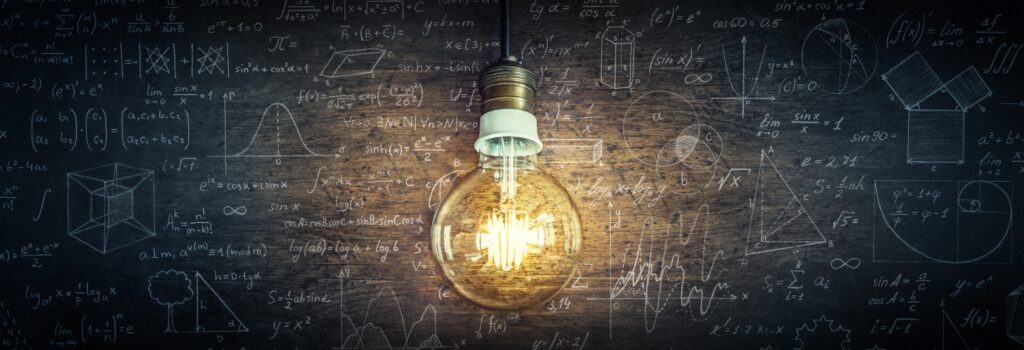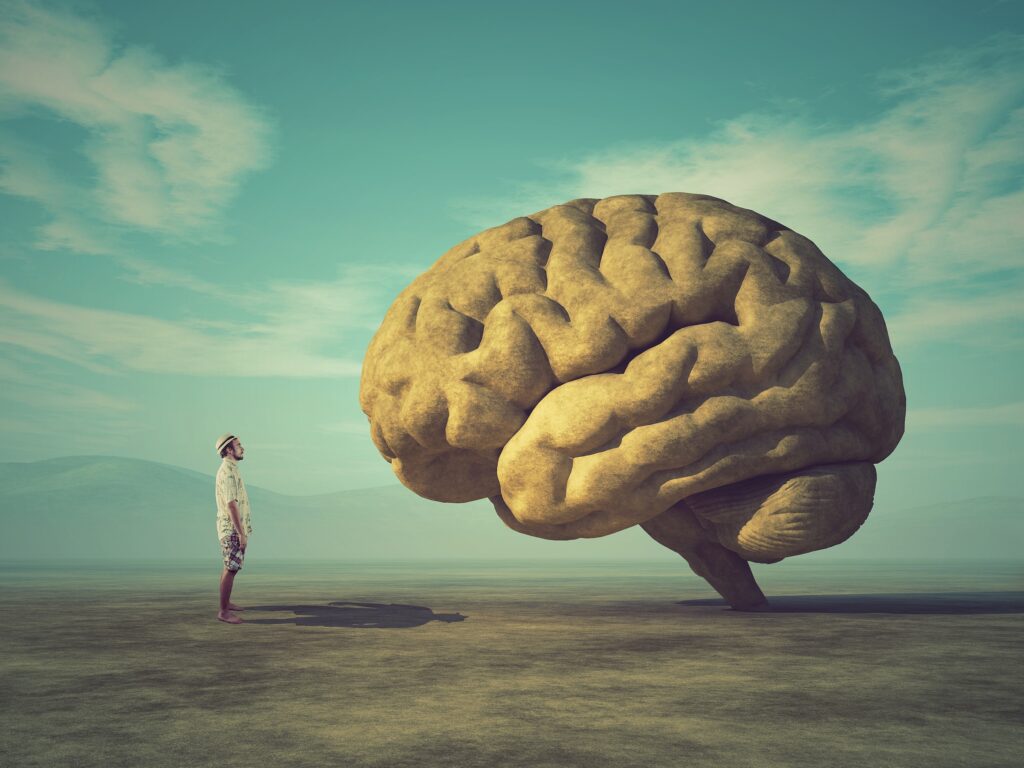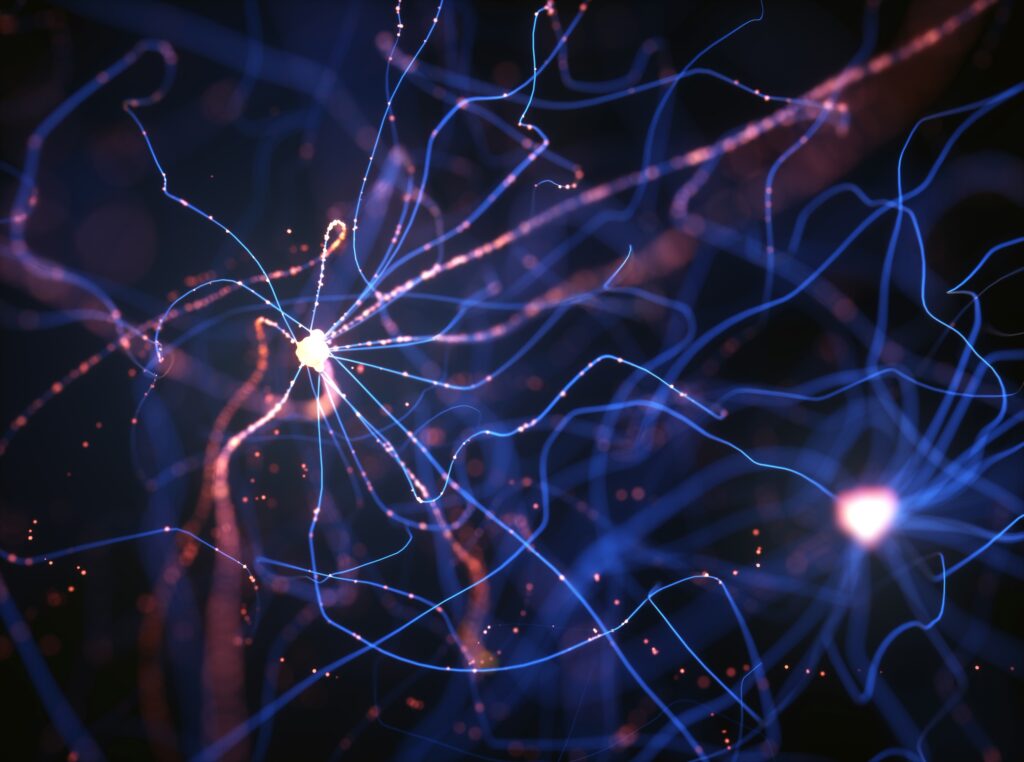Keeping a close ‘I’ on ‘reality’ in social science
Reading | Social Sciences
![]() Donna Thomas, PhD | 2021-08-01
Donna Thomas, PhD | 2021-08-01

In seeking to ameliorate social injustices by debunking the egoic self as measure of all things, the social sciences risk inadvertently abolishing the very notion of a subject of experience, argues Dr. Donna Thomas. The way forward, according to her, is to embrace metaphysics and understand the self not as a separate social agent, but as the ontic ground of all reality, common to all of us.
In La mort de l’auteur,[i] Roland Barthes proclaims the author dead, her identity dissolved in a soup of ten thousand interpretations, through the birth of the reader.[ii] What did he mean by the ‘death of the author’? Barthes (and other post-structuralists) challenged romantic notions of the artist as a producer of textual truths, a supreme creator who possessed and distributed fixed meanings. In other words, the meanings of what is written or said is never dependent on authorial intention but on active reception instead.
La mort de l’auteur (The death of the author) has re-emerged, in some ways, as the death of the ‘self,’ through a new wave of post-human thinking. Just as the atrocities of the second world war catalyzed post-structuralist challenges, our recent social crises provoke a re-examination of—not the author—but our very self(ves) and the ‘matter of matter.’[iii] The historical privileging of authors and textuality is usurped to displace mind, language and a centered-subject[iv]—that classical idea of the human as a ‘basic unit, a knowing subject that is understood as universal and the measure of all things.’[v] Deconstructing this ‘Vitruvian Man’ has been essential for challenging an image of man that has historically subjugated, oppressed and alienated groups and whole societies. But it comes with a cost. The drive towards post-human thinking obliterates the ‘self,’ troubles agency and flattens ontology with a Deluzean hammer. For do we not experience an ‘experiencer’—a sense of I-ness that is an essential aspect of experience?[vi]
Social reality is a shared consensus, held together through the dialectical relations between signs, discourses, practices and systems. The task for the linguist or critical theorist is to enter the ‘kitchen of meaning’[vii] chopping the masking of social ills and injustices. The kitchen must be entered critically, so as to identify the ‘ideological abuse in the decorative display of what-goes-without-saying’[viii]—using tools that can deconstruct enduring discourses as ‘regimes of truth,’[ix] authored by corporates, institutions and governments. We consider how relations between texts, talk and signs figure in perpetuating injustice and inequality, which are detrimental to the wellbeing of many people.[x]
However, despite good intentions, ‘the trap of language’[xi] often catches social science scholars through the act of privileging language above other modes of communication (i.e. sound, color, image) and by viewing self and the world as a discursive phenomenon. For social scholars, who do the messy business of research with humans, philosophical questions are often overlooked. We forget the most important facet of the social transformation agenda: to examine more deeply unquestioned assumptions about who we are and the nature of the reality that we unpick. We overlook deeper questions that ask who the authors of stories are and the origins of their meanings. We analyze discourse as an act of knowledge production, interpreted and molded into worldly configurations.[xii] But we don’t stop to examine the ontological influences that direct our research.
There has long been a dichotomy in social science between social reality and the natural world, found in the post-modern, critical realist and relativist underpinnings of social science scholarship. The consensus views language and self as socially constituted.[xiii] In this way, language partly constitutes social reality (along with objects, institutions, belief systems etc.). The emphasis on language, knowledge and meaning means ontology may not be a primary motivation for social scholars, who aim to uncover hidden relations ‘in the kitchen’ between, for example, identity and power.
Habermas (1996) noted the indifference towards relations between social life and ‘natural laws’ as the price we pay when ‘natural laws continue to be felt within the lifeworld.’[xiv] The natural laws that Habermas appeals to (and everyday people experience) may be better understood as underlying principles, perhaps inherent to how we experience self, others and the world. This requires an ontological move from the material to the mind. Kastrup (2017, 2018, 2019) posits the social and natural world as mental and continuous with our minds. If there is “no intrinsic separation between our minds and the objects of perception, naturally these objects should comport themselves in a way consistent with mental archetypes.”[xv] Now, this ontological leap is not so wide for us to consider in social science. Where critical realists[xvi] move to a second ontological category to claim an external material world outside our individual experiences of it, analytical idealism[xvii] sees only one ontic possibility. The external world is just seemingly separate from our perceptions of it. Made up of the transpersonal mental contents of a ‘mind-at-large,’ the external world is in fact a continuation of our self and experiences. The crucial questions are: Which ontological move can better explain human experience of self, others and the world? Which ontological primitive can offer affordances for a smoother transition between dialectics, relationalities, intersections and subjectivity?
We may not need to get rid of the ‘self’ or the mind to challenge the idea of the Vitruvian Man. Instead, turning to a more parsimonious ontology, such as analytical idealism, could support better understandings about self, subjectivity, agency and how social realities figure in relation to the natural world and the ground of reality. Viewing ontology as an extension to what already is our direct experiences offers valuable potentials for critical social studies. The task then is to recognize the importance of critical theories for social emancipation and transformation, without losing our very sense of self(ves) in the explosion of post-modern-post-humanisms-new-materialisms. It’s a quest to find better explanations about the nature of self and how discourse and relations between ‘things’ figure into it. We need, now more than ever, to keep a close ‘I’ on the ‘ideological abuse’ that is hidden within the walls of the kitchen.
[i] Barthes, 1968.
[ii] See Spivak, 1993.
[iii] See Diaz Diaz & Semenec, 2020.
[iv] See Delueze & Guittari, 1987.
[v] See Protagoras, cited in Braidotti, 2015.
[vi] See Zahavi, 2014.
[vii] See Barthes, 2015, 158.
[viii] Barthes, cited in Badmington, 2020.
[ix] see Foucault, 1980.
[x] see Choiliraki & Fairclough, 2010
[xi] See Barthes, 2005.
[xii] See Barad, 2007.
[xiii] see Fairclough, 2003; Harvey, 1996.
[xiv] See Habermas, 1996.
[xv] See Kastrup, 2017, 55.
[xvi] See Bhaskar, 1998; Fairclough, 2003.
[xvii] See Kastrup, 2018, 2019.
References
Badmington, N. (2020). An Undefined Something Else: Barthes, Culture, Neutral Life. Theory, Culture & Society, 37(4):65-76.
Barad, K. (2007). Meeting the Universe Halfway: Quantum Physics and the Entanglement of Meaning. London: Duke University Press.
Barthes, R. (2005). The Neutral: Lecture Course at the College de France (1977-1978). Trans. Rosalind, K. & Hollier, D. Columbia University Press: New York.
Barthes, R. (1951). Michelet, l’histoire et la Mort. Esprit (1940-), 178(4), 497-511.
Bhaskar, R. (1989). The Possibility of Naturalism. A philosophical critique of the contemporary human sciences. Routledge: London.
Braidotti R (2015) Posthuman Affirmative Politics. In (eds) Wilmer S E. Resisting Biopolitics. Routledge: New York.
Chouliaraki, L. & Fairclough, N. (2010). Critical Discourse Analysis in Organisational Studies: Towards an intergrationist methodology. Journal of Management Studies, doi.org/10.1111/j.1467-6486.2009.00883.x.
Deleuze, G. & Guattari, F. (1987). A Thousand Plateaus: Capitalism and Schizophrenia. London: Continuum Press.
Diaz Diaz, K. & Semenec, P. (2020). Posthumanist and New Materialist Methodologies: Research after the child. Springer: Singapore.
Fairclough, N. (2003). Analysing Discourse: Textual Analysis for Social Research. Routledge: London.
Foucault, M. (1980). Power/knowledge: Selected interviews and other writings 1972–1977 (C. Gordon, L. Marshall, J. Mepham, & K. Soper, Trans.). London: Harvester: Wheatsheaf.
Habermas, J. (1996). The Unity of reason in the Diversity of Its Voices: What is Enlightenment? In. (eds) Schmidt, J. (1996), University of California Press: Berkeley.
Harvey, D. (1998). The body as an accumulation strategy. Environment and Planning, 16, 401–421.
Kastrup, B. (2017). An Ontological Solution to the Mind-Body Problem. Philosophies, 2(2), 1–18.
Kastrup, B. (2018). The Universe in Consciousness. Journal of Consciousness Studies, 25 (5), 125-155.
Kastrup, B. (2019). The Idea of the World: A multidisciplinary argument for the mental nature of reality. John Hunt Publishing: United Kingdom.
Spivak, G. (1993). Reading the Satanic Verses: In: Outside in the Teaching Machine. London: Routledge, 217-242.
Zahavi, D. (2014). Self and Other: Exploring subjectivity, empathy and shame. Oxford Uni Press, Oxford.

Essentia Foundation communicates, in an accessible but rigorous manner, the latest results in science and philosophy that point to the mental nature of reality. We are committed to strict, academic-level curation of the material we publish.
Recently published
Reading
Essays
Seeing
Videos
Let us build the future of our culture together
Essentia Foundation is a registered non-profit committed to making its content as accessible as possible. Therefore, we depend on contributions from people like you to continue to do our work. There are many ways to contribute.















